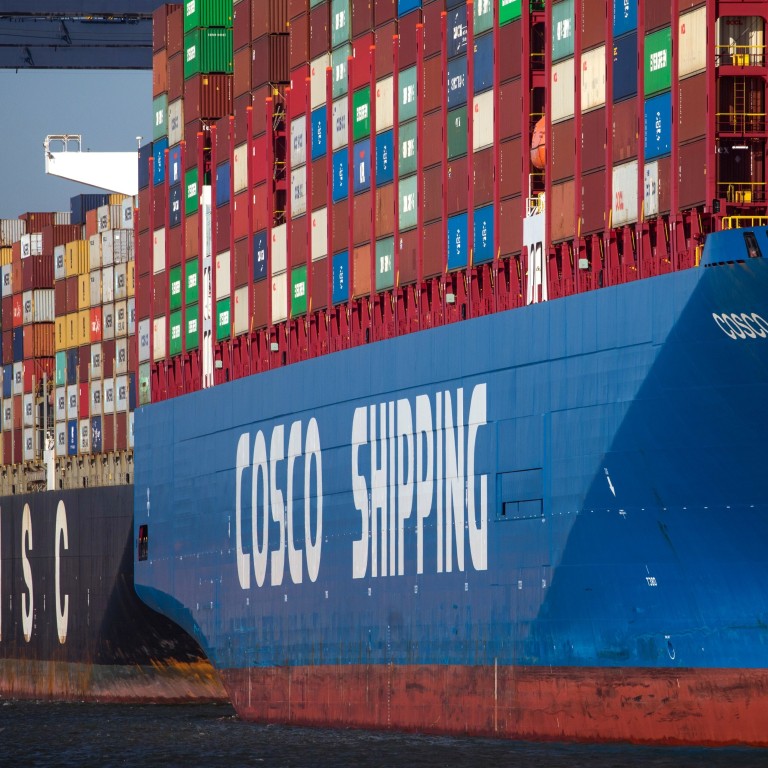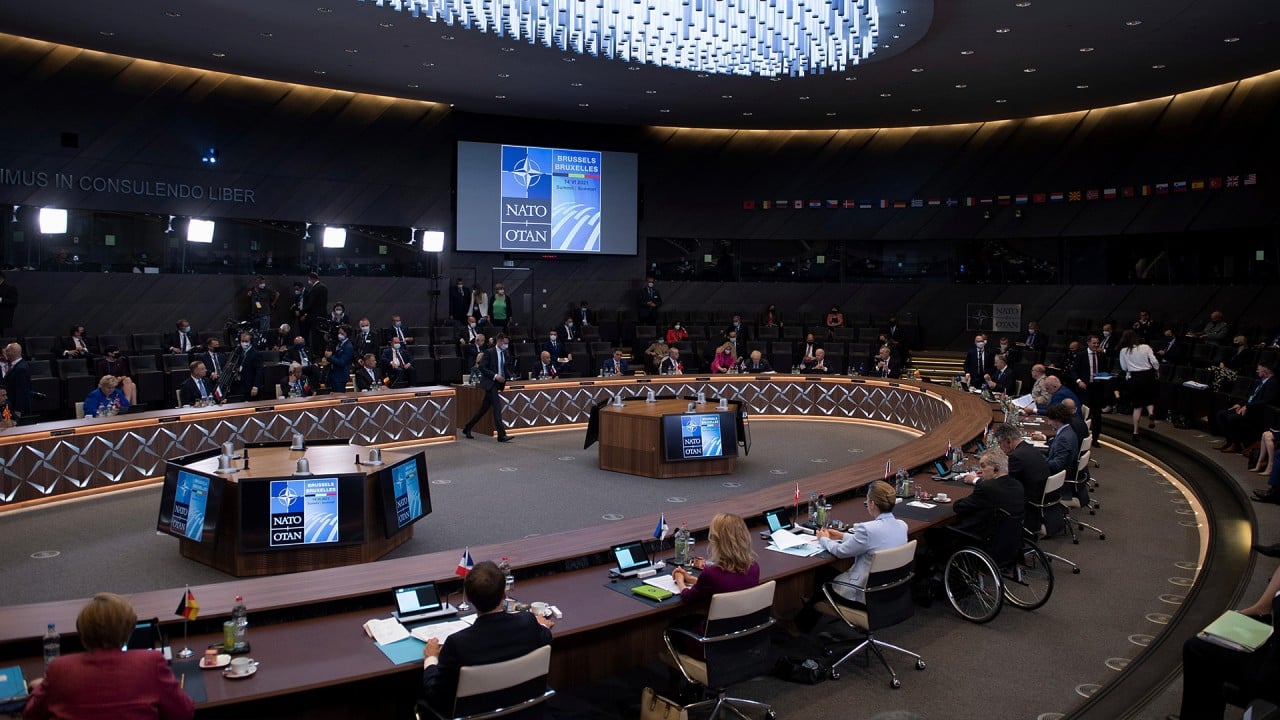
British, US China hawks call for ‘Nato for trade’ against Beijing
- Group would retaliate as one to economic coercion from China aimed at any member, proponents say
- But analysts say idea could be undermined by competing commercial interests and problems mounting joint action
Hawkish British politicians and an American industrial lobby group have called on Western allies to form a “Nato for trade” to counter China’s “weaponisation of policy tools to punish any nation that does not kowtow to Beijing”.
The proposal is for democratic nations to create a trade-based alliance along the lines of the North Atlantic military grouping formed to counter the Soviet Union in 1949.
Under Nato rules, members agree to defend any one of them that comes under attack.
Similarly, backers of the proposed Democracies’ Alliance Treaty Organisation (Dato) advocate retaliation in response to coercive measures by China against any member.

06:33
G7, Nato rhetoric mark ‘seismic shift’ between China and the West
It offers examples of how such an alliance would work. For instance, if China threatened to withdraw its students from a country reliant on income from Chinese overseas students, other nations would ban Chinese students in retaliation. Or if China threatened to put a country’s firms on its unreliable entity list – a blacklist for corporations that fall foul of Beijing – the alliance would agree to limit imports from Chinese firms.
“Any democratic nation would be welcome to join, including Taiwan, but should any nation not take the needed steps to respond after a Dato decision, they would lose the right to be a member,” the document said.
The proposal has no official backing – the British government declined to comment on the report – but it represents a further push by hawkish lawmakers who have been instrumental in shaping Westminster’s China policy, as well as national sentiment towards Beijing.
Nato says China presents ‘systemic challenges’ and vows to counter its rise
The authors said the report was in response to rising aggression from China, and the West’s consistent failure to deal with it.
China’s economic practices have come under the spotlight in the last 18 months as the coronavirus pandemic has raged and anti-China sentiment has risen.
Various multilateral groupings such as Nato and the G7 have taken tougher stands on China. In turn, China has accused both organisations of meddling in its internal affairs.
Stephen Olson, a former US trade negotiator, said the fact that a “Nato for trade” was even being discussed “suggests that China’s trade partners have serious reservations about whether trade with China can be mutually beneficial”.
“China’s quasi-mercantilist policies have pushed its key trade partners to the point where proposals like this are increasingly under consideration,” said Olson, now a senior research fellow at the Hinrich Foundation.
“The question for China’s leadership is whether this quasi-mercantilist approach is really in China’s best interest if it pushes us in the direction of a bifurcated global trade system.”
Nato chief calls for alliance to ‘respond together’ on China ahead of talks
Shi Yinhong, a professor of international relations at Renmin University and adviser to the State Council said that any plan to build further alliances against Beijing “will not be good for China”, even if details on such proposals are vague as yet.
“What is currently a disadvantage to China is that, in principle, Nato countries generally believe that they can not rely too much on the Chinese market, otherwise they may end up in the situation that Australia and Canada are experiencing, both of which China has seized by the throat,” said Shi.
“This consensus principle is very unfavorable to China, but how to implement it is a more complex matter,” he added.
But analysts were sceptical about whether such a concept was realistic, given the commercial interests at stake and the difficulty of getting countries to agree on joint action.
Bryan Mercurio, a trade law professor at Chinese University of Hong Kong, said that when Australian barley was slapped with duties by Beijing last year, American exporters moved quickly into the void.
“In trade matters, industry interests hold a lot of sway. I think the lines break down when commercial interests are in play,” Mercurio said.
“Even more than that, the governments that would form this are not really state-led in terms of economic growth model. When China takes measures against Australian barley, Americans are happy to sell, because it’s not the country selling it, it’s companies. I don’t think it is viable.”
Rebecca Christie, a non-resident fellow at the Brussels-based Bruegel think tank, said “there is nothing unified about” Western democracy – and unity was a prerequisite to making such an alliance work.
“There is no way to get all these people to agree. Let’s say they said, ‘let’s form the anti-China economic alliance, let’s beat them at their own game.’ OK, so they have their first meeting. Do you think they make a decision?”


